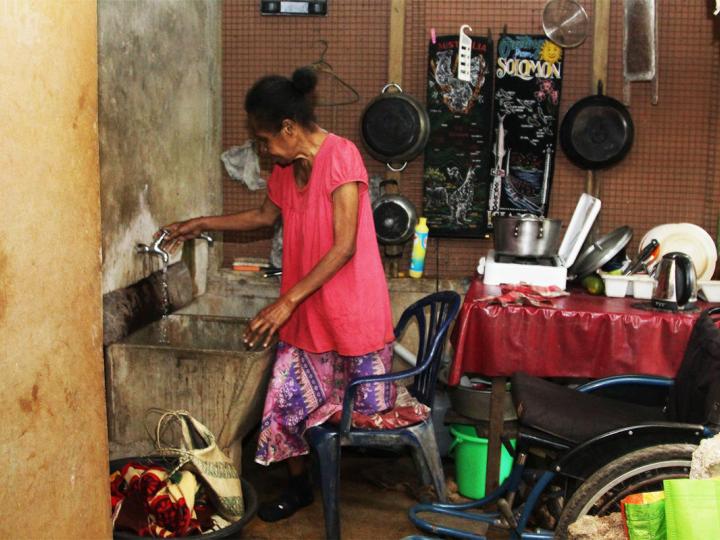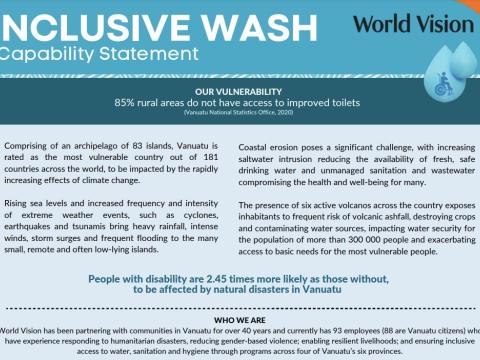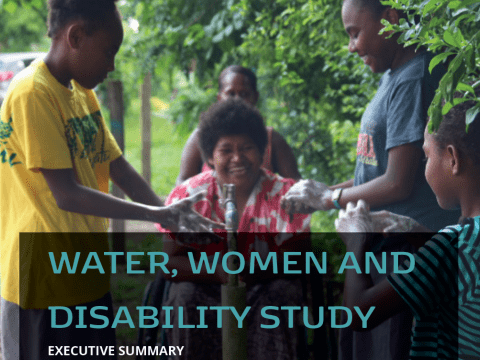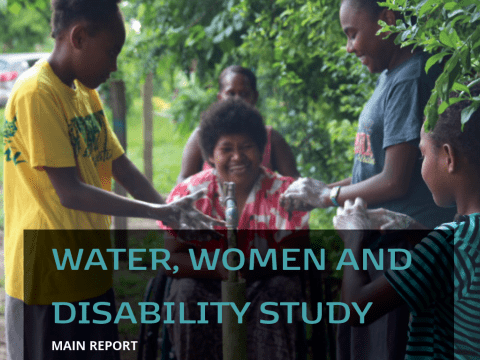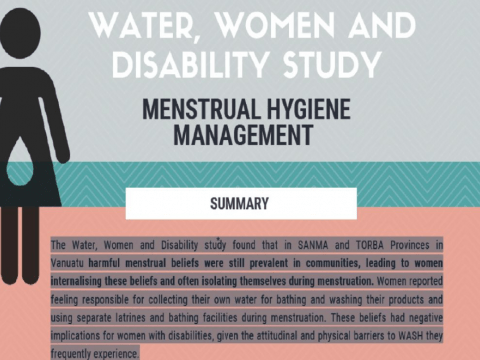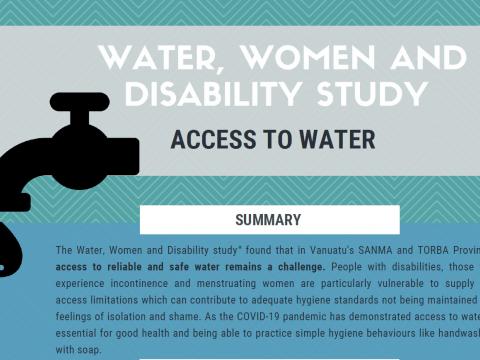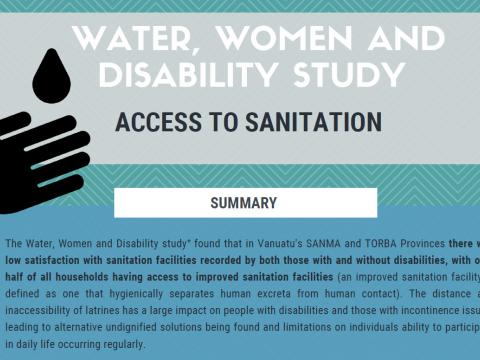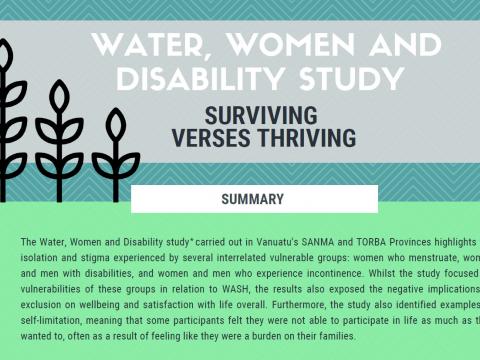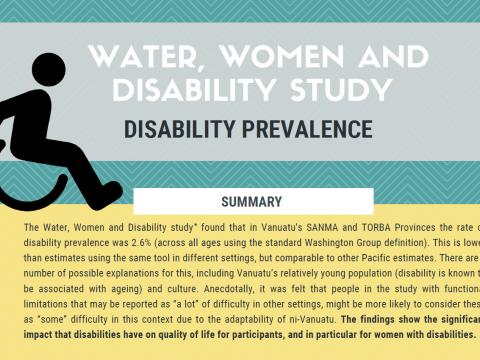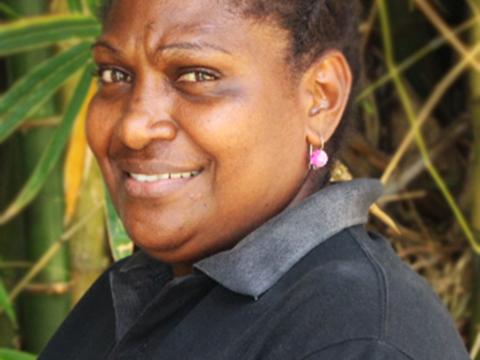Water, women and disability study - report
A new report from World Vision in Vanuatu, and one of the first of its kind in the Pacific, highlights the importance of leaving no-one behind in accessing water and sanitation and participating in community life.
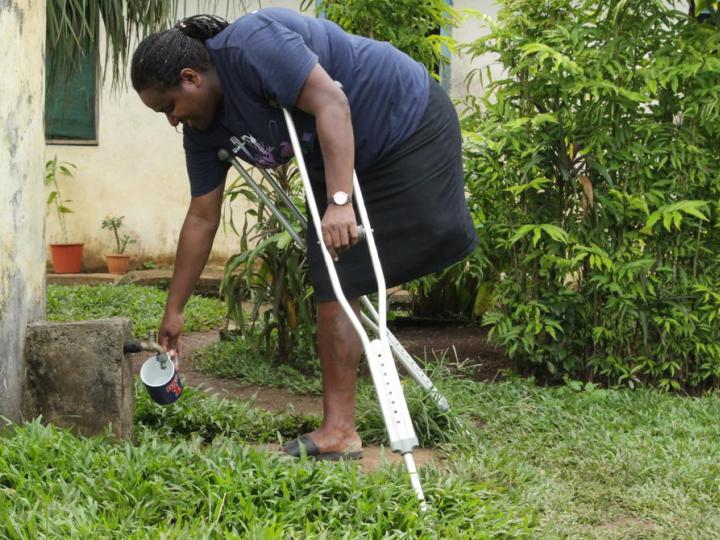
World Vision Vanuatu works with and through our partners to deliver holistic, inclusive water, sanitation and hygiene (WASH) programming that uses WASH as a vehicle to improve the health and well-being of people with disabilities and women, through access to gender-equitable and disability-inclusive WASH systems.
Two out of three people with a disability are dependent on others to collect water
People with disabilities are 11% more likely to feel unsafe if they do collect water
People with disabilities are 10 times more likely to not be able to access water at home when needed
Almost a third of people with disabilities find it difficult to use their toilet without coming into contact with faeces or urine
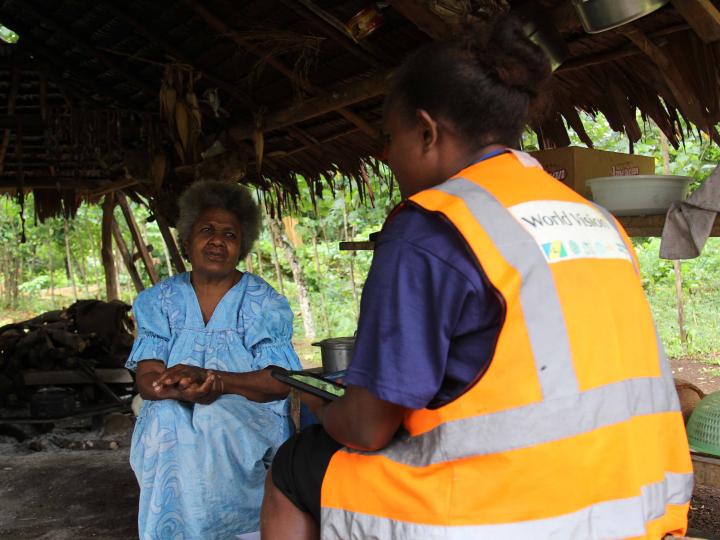
Our approach to inclusive water, sanitation and hygiene programming
Throughout our inclusive water, sanitation and hygiene (WASH) programming, we seek to bring attention to issues that are often neglected in the WASH sphere, such as menstrual hygiene management (including for people with disabilities) and continence management.
